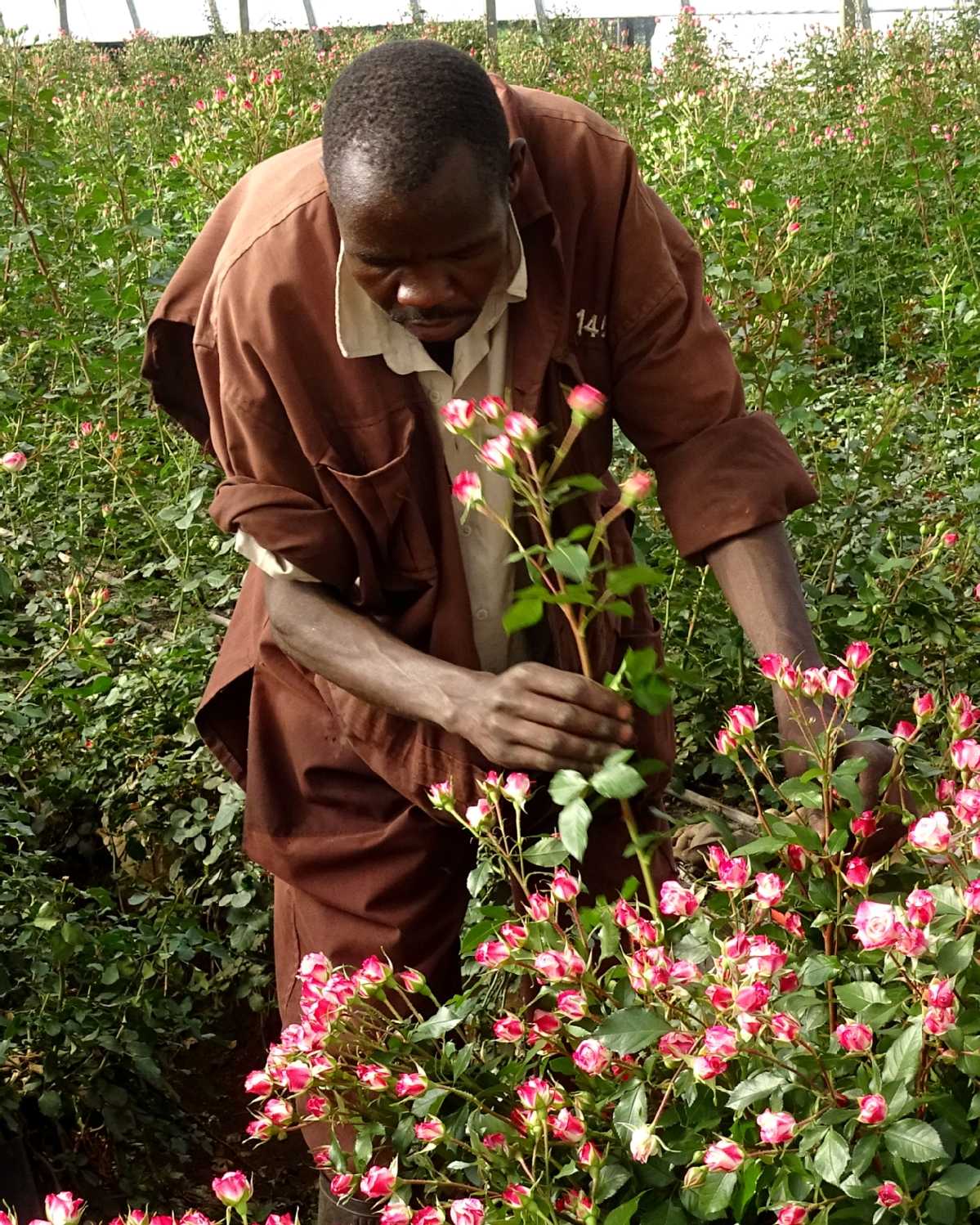
A worker tends to flowers at a farm in Nakuru, Kenya. EDITH MUTETHYA/CHINA DAILY
Flower producers gain from trade initiatives that see a pivot to China
Kenya, the world's fourth-largest producer of cut flowers, is gaining traction in the Chinese market with its premium offerings and reputation for reliable production.
Helping Kenyan growers with their ambitions for expansion in the Chinese and Asian markets are the China-proposed Belt and Road Initiative and the establishment of the Forum on China-Africa Cooperation.
Fridah Bitutu, general manager at the Imani Flowers farm in Kenya's Rift Valley, said the enterprise no longer participates in the European auction market for flowers since it started exporting to China.
"Since we entered the Chinese market two years ago, the demand for our flowers has gone up exponentially. We send at least 30 boxes weekly with about 300 stems per box depending on clients' demand," Bitutu said. "New emerging markets like China hold more potential for us. The profit margins we get from the Asian market are higher and promise to be sustainable in the long term."
Bitutu said that Kenya's flowers are attracting increased demand in China because they are grown in Kenya's tropical weather at high temperatures. Such conditions yield so-called bighead roses that fetch high prices in the Chinese market.
Clement Tulezi, the chief executive officer of the Kenya Flower Council, said that the Chinese government has gone the extra mile to encourage trade with African countries and this has made it possible for Kenyan flower growers to access the Chinese market.
The Chinese government has relaxed travel requirements for Kenyan exporters and several horticulture hubs have been opened in China. China has also simplified visa applications as well as the processing of other travel documents, all of which have helped to boost flower exports, Tulezi said.
In June 2019, Peter Munya, Kenya's Cabinet secretary of industry and trade, announced that Kenya had opened a cut flower distribution center in Central China's Hunan province in a strategy aimed at creating a direct sales link and increasing exports to Asian markets.
That month, China Southern Airlines launched direct flights between Nairobi and Changsha, the capital of Hunan province. This was a major game-changer in Kenya's flower industry since shipment times were cut from at least three days to just 14 hours.
Tulezi said China is one of the top markets that Kenya has long been eyeing because of its keen appetite for Kenyan premium flowers, and that the Chinese market holds great potential for Africa's floriculture sector.
"The Chinese market is huge and lucrative. The flower industry strategy is to diversify markets and not rely on traditional markets like the European Union but to penetrate emerging markets like China and Russia," Tulezi said.
Top priority
Kenya has made the vast Chinese market a top priority in achieving its ambitious target of export growth averaging 25 percent every quarter under its Integrated National Exports Development and Promotion Strategy, which was unveiled in July 2018.
The Kenya Flower Council had planned to participate in an expo in April in Beijing, but the event was postponed due to the coronavirus outbreak, Tulezi said. "We plan to participate in subsequent expos once the situation improves," he said.
Tulezi said the impact of the pandemic may affect the country's export targets this year. The flower industry will take a hit due to transport restrictions for both inputs from China and flowers to China, he added, noting that the country is the source of most agricultural inputs used in growing flowers in Kenya.

